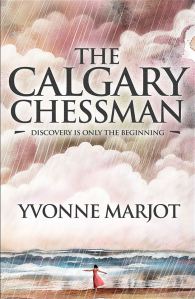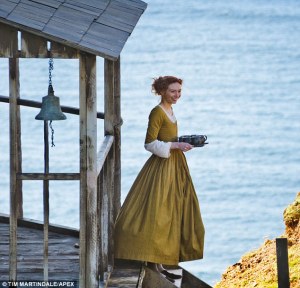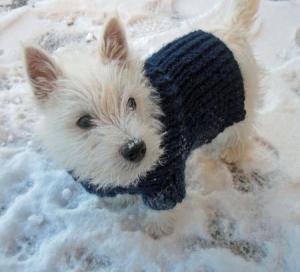My writing friend Kim Walker https://nutsandcrisps.wordpress.com/2015/04/13/my-lovely-blog-hop/ has tagged me in this blog hop. My current work-in-progress is a novel with fairy tale aspects, so I thought it might be nice to post this short story, also based an a traditional story that we all know.
Aurora in Tatters
(A well-known fairytale in new clothes)
Deep in the long-ago, when days were long and the rivers were full of fish, there lived a reindeer herder, who spent the days running with his herd over the wide tundra. The joy of his life was his wife, Anushka, and their baby daughter, Aurora, named for the flickering curtains of light that hung in the midwinter sky.
In the summer, Anushka rode alongside her husband and shared the work, and the baby was wrapped in richly embroidered garments and lashed to her cradle, which hung from the back of the largest reindeer, so that her earliest memories were of snow and trees and the yellow grass and tiny flowers of the tundra, all swaying and moving in a rhythm of hoofbeats punctuated by the sound of harness bells. But one day, when Aurora was still a young girl, Anushka sickened and died. A reindeer herder cannot manage his herd alone, so Aurora’s father took another wife: a strong woman with half-grown daughters of her own.
The woman was a good worker, and handled the reindeer well, although she preferred not to sully her hands with domestic work. Her daughters were spoilt and idle, and the lazy girls would beat and pinch Aurora until she agreed to do all their chores for them. When Aurora tried to speak up, her stepmother scolded her for her wicked lies. Her father looked at her with sad eyes and said, “Aurora, it’s not like you to complain,” and for his sake she tried not to respond to her sisters’ spite.
Not long after, Aurora’s father also died and she was left alone in the world apart from the stepmother and the wicked stepsisters. Now the work really began. There was mending and weaving to be done, and the dense, colourful woollen embroideries of the Sami, until her fingers bled and ached. There was cooking, and collecting fuel, to keep her sisters warm and fed while they lay before the fire and gossiped about this one, or that one who had caught their fancy. And of course there were always the reindeer. Aurora’s strong, young fingers were ideal for teasing out burrs in manes and coats, for reaching deep into straining bodies to ease the birth of calves, or just as a comfort for youngsters to suck on when they were first weaned.
The mother could not run the herd alone, and the sisters had learned nothing about the beasts, so it was for Aurora to check hooves and antlers, soothe sore joints and groom hides, comfort the weanlings and gut and strip the carcasses of mothers that had not made it through the dangerous hours of birthing.
There was no new clothing for Aurora, no footwear when her feet grew, no rich, decorated holiday coat or fur-lined hood to comfort her days. Her clothing grew grey and ragged with use, and her breath froze on the lining of her hood, so that on winter days the icicles jangled and rattled against her face. The sisters spoke of nothing but the coming summer gathering, when all the herds come together and there is feasting and dancing. This year the son of the most powerful herder would choose his bride at the solstice celebration. There would be a great dance, all day and all night, to find out which of the young women had the strength of body and will to make the best match, and both sisters fancied themselves as the chosen one.
Come the day, Aurora was exhausted. She had been up all night, sewing through the long, long hours of midsummer half-light, and had completed her sisters’ festival coats with moments to spare. They had shown their thanks with a pinch and a kick as they left the tent, swept away by their mother to enjoy the day. Aurora lay on the floor, too tired to move, and closed her eyes – just for a moment. Her eyes shot open again at the sound of a voice. She scrambled to her feet and turned to face the woman who had just pulled open the flap.
Her figure said she was young, but her face was lined and full of experience. She was dressed from head-to-toe in embroidered finery, white on white, and the absence of colour was somehow more beautiful than the colourful work Aurora had spent her best talents on that morning. Her mukluks and hood were made of a sumptuous, buttery-white fur. Her eyes were black, and bright. Aurora had never seen her before.
She held out her hand and Aurora took it, bemused. “I am Anelka,” she said, “and you are my sister-daughter. I have come to bid you join the dance.”
“No, no,” Aurora protested. “I can’t go to the dance. I have nothing to wear.” She pulled her rags around herself and hung her head.
Anelka gestured to a bag that lay at her feet. “I had thought you younger,” she said, “but you are thin enough. I think these will fit.”
Aurora upended the bag and out poured the most gorgeous embroidered garments, made of finest wool and bearing her own family’s sigils and designs – the narwhal, the tundra lily and the great ice bear. The clothing fitted her perfectly. At the end her aunt slid her own feet out of the beautiful ice-bear fur mukluks and passed them over to Aurora, along with the bear fur hood. Aurora’s fingers, tired to the bone, ached as she tried to tie the laces and her hands shook.
Anelka knelt and tied the laces for her. Then she handed Aurora an otterskin bottle. “Drink it,” she said. “It will help.”
Aurora tipped the bottle to her lips. She tasted lichen, herbs and the strong, harsh spirit the reindeer herders brewed, distilled over ice in the bitter winter nights. She drank. The concoction worked like magic – dispelling her fatigue and filling her with confidence. Her cheeks flushed and her eyes brightened. Throwing her arms around her aunt, she hugged her hard, then ran as fast as her legs could carry her to join the dancing.
It took half the night for her to work her way in to the central group. All round her, the older members of the gathering were failing, one by one, and settling down to drink, and talk, and watch the young ones dance on. At around midnight, her elder stepsister gave in, stumbling to the side and sinking to the ground. Groaning, she clutched her ankle and moaned, “if only I had not worked so hard today. I am sure I could have lasted the night.” Her sibling lasted scant moments longer. Her complaint: “I am sure the ungrateful child has made my mukluks with a wrinkle in the sole, and now I have a blister.”
Aurora danced on, blissfully unaware, shaking out her plaits and stamping the ground down under her strong, long, never-tiring legs, shedding her layers of beautiful clothing as the hot summer night wore on. As dawn fluttered across the sky, the half-light broadening into the golden glow of a new day, she raised her head and at last everyone could see her face as she met the eyes of the man for whom they were all in competition. They were the only dancers still standing. He was tall, not a youth but in the first strength of his manhood. His grey eyes warmed as he looked on her, and he held out his hand. “So, it is to be you,” he said as he lifted Aurora’s hand above her head and turned her in a full circle, so that all the people could see her.
Aurora dipped and twirled in this final step of the dance, but as the drums thudded into silence and the singers’ voices fell she stepped away. Her voice rang out clearly over the heads of the gathered crowd, although her words were directed to the man who stood before her.
“I thank you for this dance – I will always remember it. I am sure you would make a wonderful husband, but I am not ready to marry. I am going with my aunt into the deep north to hunt the great ice bears. Perhaps when I come back we can dance the summer dance again, and we will see who has the strength to finish.”
Her partner gave no sign that he was disappointed. His face was grave as he bowed his head to her, although a smile quirked the corner of his lips. “I shall look forward to it,” he said. His hand rested, briefly warm, in the small of her back as he escorted her to Anelka’s side, and he bent and scooped up the pile of her discarded clothing and handed it to her.
His father joined him, and the two reindeer herders, old and young, stood and watched the women walk away. They moved lightly, like wild animals themselves, through the reindeer and the herds closed around them. As they disappeared from sight, the younger man bent to pick up something lying at his feet. He laughed. In his hand he held one, beautiful, ivory-coloured bear-fur mukluk.









Recent Comments